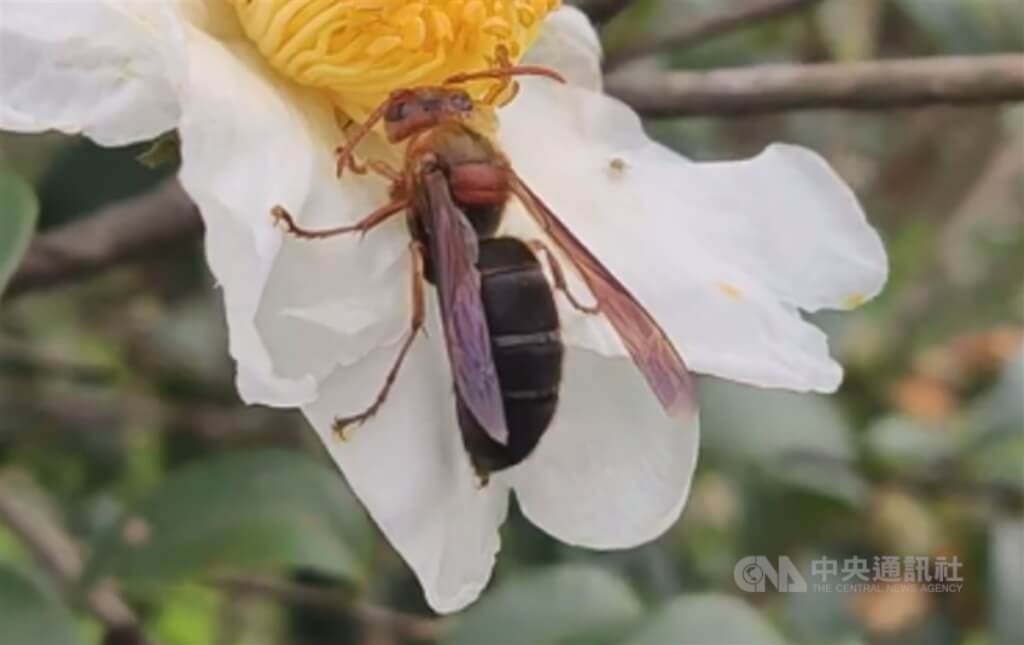How dangerous are hornet attacks in Taiwan?
Taipei, Aug. 28 (CNA) A 41-year-old man died last week after being attacked by hornets in Taitung County, southeastern Taiwan. He had been leading a group of students on a hike along the Jinshuiying Old Trail when a swarm descended on him and stung him more than 50 times.
The prospect of being stung by this buzzing insect might deter someone from tackling one of Taiwan’s countless hiking trails. But how common are hornet attacks in Taiwan? And what should you do if you find yourself in the middle of an angry swarm?
Yang Chen-chang (楊振昌), director of the Department of Clinical Toxicology and Occupational Medicine at Taipei Veterans General Hospital, spoke to CNA last Friday and shared his knowledge of the hornet attack phenomenon from a public health perspective.
Q1: How common are hornet attacks?
Fatal hornet attacks are rare.
According to the Ministry of Health and Welfare and the General Clinical Research Center at Taipei Veterans General Hospital, of the 611 hornet stings reported to the hospital’s poison control center, about 4.7 percent resulted in severe toxicosis and about 2.8 percent resulted in death.
Yang said there are two worst-case scenarios in a hornet attack.
First, the stings can cause a severe allergic reaction called anaphylaxis, which is sometimes fatal.
In such a case, bronchospasm – a narrowing of the airways that connect the windpipe to the lungs – can occur 30 minutes to two hours after the initial sting. If appropriate medical treatment, such as an adrenaline injection, is not given, the person suffering the allergic reaction can die from suffocation.
The second life-threatening scenario, Yang said, can occur when a large number of stings cause rhabdomyolysis, a condition in which muscles break down rapidly, leading to kidney failure or pulmonary edema.
However, rhabdomyolysis can only be triggered by a large number of stings, such as at least 25 hornet stings or at least 350 bee stings, Yang said.
Yang recommends that in the unlikely event that a person is stung by a large number of hornets, they go to the hospital and remain under medical observation for six to 12 hours.
Q2: In which season are hornet attacks most common?
Hornet attacks are more likely in summer and fall, with the highest number of monthly cases reported in September, Yang said.
This is the most common time for stings to occur because the hornets are usually busy building their nests and storing food, so they are prone to becoming angry when disturbed, Yang added.
Q3: What is the best way to prevent hornet attacks?
Avoid perfume and bright clothing when doing outdoor activities, advises Yang.
If you see hornets nearby, get away as quickly as possible. However, avoid running away, as this could be perceived as aggressive by the hornets.
Q4: What should I do if I am attacked by hornets?
If you are attacked by hornets, it is important to leave the area, Yang said, because hornets react aggressively when they perceive a threat to their hive and are unlikely to attack again outside their nest.
Once you are at a safe distance, wash the affected areas of your body with clean water.
If the hornets’ tails or stingers are stuck in your skin, you should pull them out with your hands or scissors, the doctor advises.
Redness and swelling usually subside within one to two days unless the wounds become infected, Yang said.
Although some people believe that urine or taro juice should be applied to the sting sites, Yang advises against using such fluids because they have no clinical benefit and may instead cause infection.

